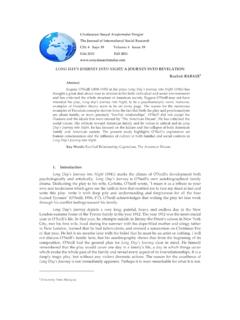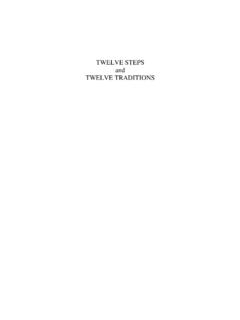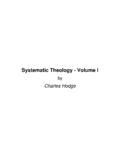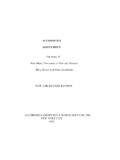Transcription of Mackey’s Landmarks - Ephrata Lodge No. 665 …
1 1 mackey s Landmarks Table of Contents mackey s Landmarks .. 1 FIRST .. 3 3 THIRD .. 3 3 FIFTH .. 4 SIXTH .. 4 SEVENTH .. 4 EIGHTH .. 4 NINTH .. 5 TENTH .. 5 ELEVENTH .. 5 TWELFTH .. 6 THIRTEEN .. 6 FOURTEENTH .. 6 FIFTEENTH .. 6 6 SEVENTEENTH .. 7 EIGHTEENTH .. 7 NINETEENTH .. 7 TWENTIETH .. 7 TWENTY-FIRST .. 7 TWENTY-THIRD .. 8 TWENTY-FOURTH .. 9 TWENTY-FIFTH .. 9 2 Note: The Grand Lodge of Pennsylvania does not record any special list of Landmarks . It appears that at more than a majority of Grand Lodges have not adopted any specific Landmarks . 1. The modes of RECOGNITION. 2. THE DIVISION OF SYMBOLIC MASONRY INTO THREE DEGREES. 3. The Legend of the THIRD DEGREE. 4. THE GOVERNMENT OF THE FRATERNITY BY A PRESIDING OFFICER called a Grand Master. 5. The prerogative of the Grand Master to preside over every assembly of the craft.
2 6. The prerogative of the Grand Master to grant Dispensations for conferring degrees at irregular times. 7. The prerogative of the Grand Master to give dispensations for opening and holding Lodges. 8. The prerogative of the Grand Master to make masons at sight. 9. The necessity of masons to congregate in lodges. 10. The government of the craft, when so congregated in a Lodge by a Master and two Wardens. 11. The necessity that every Lodge , when congregated, should be duly tiled. 12. The right of every mason to be represented in all general meetings of the craft and to instruct his representatives. 13. The Right of every mason to appeal from the decision of his brethren in Lodge convened, to the Grand Lodge or General Assembly of Masons. 14. THE RIGHT OF EVERY MASON TO VISIT and sit in every regular Lodge .
3 15. No visitor, unknown as a Mason, can enter a Lodge without first passing an examination according to ancient usage 16. No Lodge can interfere in the business of another Lodge , nor give degrees to brethren who are members of other Lodges 17. Every freemason is Amenable to the Laws and Regulations of the masonic jurisdiction in which he resides. 18. Qualifications of a candidate: that he shall be a man, unmultilated, free born, and of mature age. 19. A belief in the existence of God. 20. Subsidiary to this belief in God, is the belief in a resurrection to a future life. 21. A "Book of the Law" shall constitute an indispensable part of the furniture of every Lodge . 22. THE EQUALITY OF ALL MASONS. 23. The secrecy of the institution. 24. The foundation of a Speculative Science, for purposes of religious or moral teaching.
4 25. These Landmarks can never be changed. 3 FIRST The modes of RECOGNITION are, of all the Landmarks , the most legitimate and unquestioned. They admit of no variation; and if ever they have suffered alteration or addition, the evil of such a violation of the ancient law has always made itself subsequently manifest. [An admission of this is to be found in the proceedings of the Masonic Congress at Paris, where a proposition was presented to render these modes of recognition once more universal - a proposition which never would have been necessary, if the integrity of this important landmark had been rigorously preserved.] SECOND THE DIVISION OF SYMBOLIC MASONRY INTO THREE DEGREES is a landmark that has been better preserved than almost any other, although even here the mischievous spirit of innovation has left its traces, and by the disruption of its concluding portion from the Third Degree, a want of uniformity has been created in respect to the final teaching of the Master s order, and the Royal Arch of England, Scotland, Ireland, and America, and the "high degrees" of France and Germany, are all made to differ in the mode in which they lead the neophyte to the great consummation of all symbolic masonry.
5 In 1813, the Grand Lodge of England vindicated the ancient landmark , by solemnly enacting that ancient craft Masonry consisted of the three degrees: Entered Apprentice, Fellow Craft, and Master Mason, including the Holy Royal Arch; but the disruption has never been healed, and the landmark , although acknowledged in its integrity by all, still continues to be violated. THIRD The Legend of the THIRD DEGREE is an important landmark , the integrity of which has been well preserved. There is no rite of Masonry, practiced in any country or language, in which the essential elements of this legend are not taught. The lectures may vary, and indeed are constantly changing, but the legend has ever remained substantially the same; and it is necessary that it should be so, for the legend of the Temple Builder constitutes the very essence and identity of Masonry; any rite which should exclude it, or materially alter it, would at once, by that exclusion or alteration, cease to be a Masonic rite.
6 FOURTH THE GOVERNMENT OF THE FRATERNITY BY A PRESIDING OFFICER called a Grand Master, who is elected from the body of the craft, is a Fourth landmark of the Order. Many persons [ignorantly] suppose that the election of the Grand Master is held in consequence of a law or regulation of the Grand Lodge . Such, however, is not the case. The office is indebted for its existence to a landmark of the Order. Grand Masters |, or persons performing the functions under a different but equivalent title,| are to be found in the records of the institution long before Grand Lodges were established; and if the present system of legislative government by Grand Lodges were to be abolished, a Grand Master would be necessary. [In fact, although there has been a period within the records of history, and indeed of very recent date, when a Grand Lodge was unknown, there never has been a time when the craft did not have their Grand Master.]
7 ] 4 FIFTH The prerogative of the Grand Master to preside over every assembly of the craft, wheresoever and whensoever held, is a fifth landmark . It is in consequence of this law, derived from ancient usage, and not from any special enactment, that the Grand Master assumes the chair, or as it is called in England, "the throne," at every communication of the Grand Lodge ; and that he is also entitled to preside at the communication of every Subordinate Lodge , where he may happen to be present. SIXTH The prerogative of the Grand Master to grant Dispensations for conferring degrees at irregular times, is another and a very important landmark . The statutory law of Masonry requires a month, or other determinate period, to elapse between the presentation of a petition and the election of a candidate.
8 But the Grand Master has the power to set aside or dispense with this probation, and allow a candidate to be initiated at once. This prerogative he possessed [in common with all Masters,] before the enactment of the law requiring a probation, and as no statute can impair his prerogative, he still retains the power[, although the Masters of Lodges no longer possess it]. SEVENTH The prerogative of the Grand Master to give dispensations for opening and holding Lodges is another landmark . He may grant, in virtue of this, to a sufficient number of Masons, the privilege of meeting together and conferring degrees. The Lodges thus established are called "Lodges under Dispensation." [They are strictly creatures of the Grand Master, created by his authority, existing only during his will and pleasure, and liable at any moment to be dissolved at his command.]
9 They may he continued for a day, a month, or six months; but whatever be the period of their existence, they are indebted for that existence solely to the grace of the Grand Master.] EIGHTH The prerogative of the Grand Master to make masons, is a landmark which is closely connected with the preceding one. There has been much misapprehension in relation to this landmark , which misapprehension has sometimes led to a denial of its existence in jurisdictions where the Grand Master was perhaps at the very time substantially exercising the prerogative, without the slightest remark or opposition. [It is not to be supposed that the Grand Master can retire with a profane into a private room, and there, without assistance, confer the degrees of Freemasonry upon him. No such prerogative exists, and yet many believe that this is the so much talked of right of "making Masons at sight".
10 The real mode and the only mode of exercising the prerogative is this: The Grand Master summons to his assistance not less than six other masons, convenes a Lodge , and without any previous probation, but in sight of the candidate, confers the degrees upon him, after which he dissolves the Lodge and dismisses the brethren. Lodges thus convened for special purposes are called occasional lodges. This is the only way in which any Grand Master within the records of the institution has ever been known to "make a Mason at sight". The prerogative is dependent upon that of granting dispensations to open and hold Lodges. If the Grand Master has the power of granting to any other Mason the privilege of presiding over Lodges working by his dispensation, he may assume this privilege of presiding to 5 himself; and as no one can deny his right to revoke his dispensation granted to a number of brethren at a distance, and to dissolve the Lodge at his pleasure, it will scarcely be contended that he may not revoke his dispensation for a Lodge over which he himself has been presiding, within a day, and dissolve the Lodge as soon as the business for which he had assembled it is accomplished.




